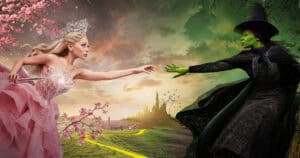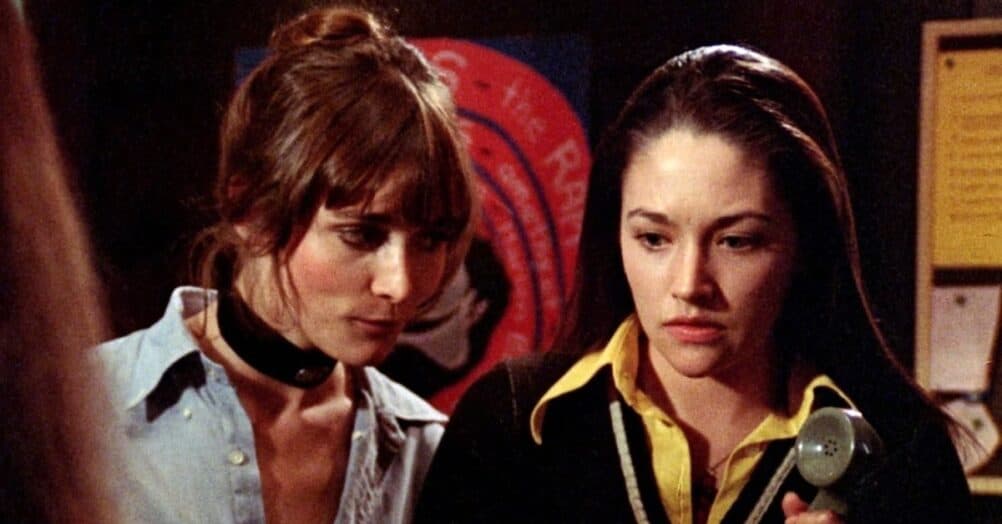Last Updated on July 31, 2021

PLOT: A depressed American man travels to Japan's "Suicide Forest" on a quest to end it all. A chance meeting with another lost soul makes him rethink his decision, as well as ponder the events that led him there in the first place.
REVIEW: THE SEA OF TREES is pretty to look at but tough to swallow; maybe because it's like trying to drink sap. Cloying in an almost Nicholas Sparks-ish way, it's hard to fathom that director Gus Van Sant (DRUGSTORE COWBOY, ELEPHANT) found himself helming a story filled with such treacly contrivances. Even more unfathomable that stars like Matthew McConaughey, Naomi Watts and Ken Watanabe would sign up for the mawkish claptrap. The script, by BURIED scribe Chris Sparling, was on the Black List a few years ago, so certainly something was lost in translation on set, in the editing room, somewhere.
The film is predominantly set in Japan's infamous Aokigahara Forest, commonly referred to as the Suicide Forest, which you may remember was also the setting for this year's extremely dumb thriller THE FOREST. A place said to hold the spirits of those who've gone to die there, it's a fascinating locale, presumably ripe for any number of exciting, thought-provoking stories. This year on the big screen, the forest has gone 0-2. When you can't come up with something cool in this place, it's a signifier that Hollywood is truly out of ideas. But while THE FOREST used it to poorly execute cheap jump scares, THE SEA OF TREES actually seems to have an angle that'll exploit the location in an interesting way. Only about 1/4 of the way into the film, you find that it doesn't know how to do that.

McConaughey stars as Arthur Brennan, who when we meet him is indeed on a suicide mission to the Suicide Forest (we know it's looking bad because he leaves his keys in his car at the airport and buys a one-way ticket). When Arthur arrives at the forest, he strolls around for a while, sees a few corpses, finds a rock to settle on and proceeds to pop some sleeping pills. His grim activity is halted when he sees a bloodied, incoherent man named Takumi (Watanabe) wandering around, lost. Arthur attempts to guide the lost man to a path out of the forest, but in the process both of them lose their way. Their missions of suicide on hold, now the two strangers have to figure out how to leave the damn place.
Why is Arthur so committed to ending it all? We learn that via flashbacks, naturally: his grief has to do with the very strained relationship he had with his wife, Joan (Naomi Watts), who is clearly not in the picture anymore. This series of flashbacks (like the opening section in the forest) is intriguing at first but grows increasingly repetitive and tiresome, as we discover the sordid (and predictable) details of the crumbling marriage and Joan's eventual fate. The biggest takeaway, the one that the movie pounds into our heads, is that both Arthur and Joan were selfish, bitter people who resented each other until they were forced not to by extenuating circumstances. These were not fun people to be around.

Not only does the movie try our patience with its morosely plodding way of doling out information, it's also just straight-up ridiculous. Arthur is subject to about four different severe injuries throughout his travels that would hobble even the strongest man, but time and time again he shakes it off and is up and walking around. At first I thought this was a sign of divine intervention or something along those lines, but no: the movie treats Arthur as if he were an action movie character, one who can not only survive a paralyzing fall off a cliff onto a bed of rocks, but take a leisurely hike minutes afterward.
But that's no match for how stunningly botched the third act is; what actually happened to Joan, when revealed, is as laughable as it is preposterous. Add to that about four or five false endings, as the movie struggles to figure out just when the hell it's going to say "enough's enough," and any possible goodwill THE SEA OF TREES once had has been battered down. One of these endings contains a "twist" of sorts, although any audience member with half a brain might guess this twist almost immediately, hence when it finally lands in all its glory it does so with a great big thud. I'd be curious to read the draft of Sparling's screenplay that made the Black List, because surely it couldn't have been this wrongheaded and cheesy. Van Sant, either sleepwalking through this gig or simply admiring the view, is not in top form at all while guiding the script, although he sure gets a lot of lovely pictures from cinematographer Kasper Tuxen.
The actors can't be faulted, save for their decisions to agree to appear in the first place. McConaughey is sincere and solemn, delivering his lines with rigid intensity; you can see him struggling to find the last vestiges of merit the screenplay has to offer. Watts is also good, although again she's been handed "the wife" role, which she's more than a pro at now. Watanabe looks to be in a near-constant state of sorrowful agony throughout, although Sparling's script barely has time to give him much of a backstory; perhaps not surprisingly, a story taking place in one of Japan's most notorious locations ends up focusing on a steely white man who makes a sidekick out of his Japanese companion.



















Follow the JOBLO MOVIE NETWORK
Follow us on YOUTUBE
Follow ARROW IN THE HEAD
Follow AITH on YOUTUBE